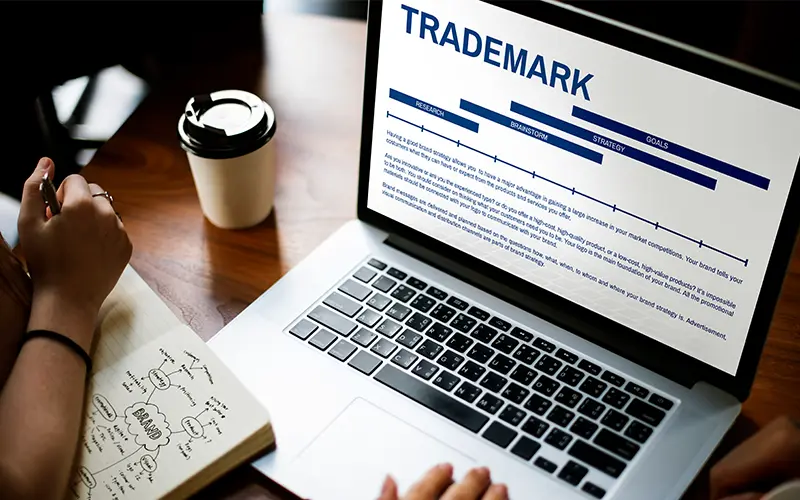International Trademark
- Home
- »
- International Trademark

International Trademark Registration
International trademark registration refers to the process of protecting a trademark across multiple countries through a single application. This is facilitated by the Madrid System, administered by the World Intellectual Property Organization (WIPO). Under this system, trademark owners can file a single application, in one language, to seek protection in multiple member countries. Benefits include streamlined registration processes, cost efficiency, and simplified management of trademark rights across different jurisdictions. International registration enhances brand protection and facilitates global expansion by ensuring consistent trademark rights in markets covered by the Madrid Protocol, offering a strategic advantage for businesses operating internationally.
What is Trademark ?
A trademark is a distinctive sign, symbol, word, or phrase used by businesses to identify and distinguish their goods or services from those of others in the marketplace. It serves as a unique identifier of the source of the products or services, helping consumers recognize and associate them with a specific brand. Trademarks can include logos, brand names, slogans, or even packaging designs. By registering a trademark, businesses gain exclusive rights to use the mark commercially and can take legal action against unauthorized use or infringement, thus protecting their brand identity and reputation.

Types of International Trademarks
There are several types of trademarks recognized based on their distinctiveness and how they are represented:
Word Marks: Consist of words, letters, or numbers, such as brand names (e.g., Apple, Nike).
Logo Marks: Logos or designs that represent the brand visually (e.g., the Nike swoosh, the Apple logo).
Combination Marks: Include both words and logos, where the design and text are presented together (e.g., McDonald’s golden arches with the name).
Slogan Marks: Catchphrases or taglines associated with a brand (e.g., “Just Do It” for Nike).
Sound Marks: Non-conventional trademarks based on distinctive sounds or jingles (e.g., the Intel jingle).
Three-Dimensional Marks: Representations of the shape or packaging of goods (e.g., the Coca-Cola bottle shape).
Color Marks: Specific colors used to distinguish a product or service (e.g., the pink color of Owens-Corning fiberglass).
Word Marks: Consist of words, letters, or numbers, such as brand names (e.g., Apple, Nike).
Logo Marks: Logos or designs that represent the brand visually (e.g., the Nike swoosh, the Apple logo).
Combination Marks: Include both words and logos, where the design and text are presented together (e.g., McDonald’s golden arches with the name).
Slogan Marks: Catchphrases or taglines associated with a brand (e.g., “Just Do It” for Nike).
Sound Marks: Non-conventional trademarks based on distinctive sounds or jingles (e.g., the Intel jingle).
Three-Dimensional Marks: Representations of the shape or packaging of goods (e.g., the Coca-Cola bottle shape).
Color Marks: Specific colors used to distinguish a product or service (e.g., the pink color of Owens-Corning fiberglass).
Expert Consultant for Trademark Registration
To initiate online trademark registration in India, prepare the following documents and details:
Applicant Information: Name, address, nationality, and business type (individual, company, LLP, etc.).
Trademark Details: Clear representation of the trademark (logo, wordmark, etc.), description of goods/services, and date of first use (if applicable).
Power of Attorney: Signed by the applicant authorizing a trademark agent or attorney to file the application (if applicable).
Identity Proof: PAN card or Aadhaar card for individuals; Certificate of Incorporation for companies; Partnership Deed for partnerships.
Address Proof: Utility bill, Aadhaar card, or voter ID.
Trademark Specimen: Image or sample showing the trademark as used or intended to be used.
Priority Claim: If claiming priority based on an earlier application (if applicable).
Form of Authorization: Authorizing the trademark agent or attorney to file the application on behalf of the applicant (if applicable).
Applicant Information: Name, address, nationality, and business type (individual, company, LLP, etc.).
Trademark Details: Clear representation of the trademark (logo, wordmark, etc.), description of goods/services, and date of first use (if applicable).
Power of Attorney: Signed by the applicant authorizing a trademark agent or attorney to file the application (if applicable).
Identity Proof: PAN card or Aadhaar card for individuals; Certificate of Incorporation for companies; Partnership Deed for partnerships.
Address Proof: Utility bill, Aadhaar card, or voter ID.
Trademark Specimen: Image or sample showing the trademark as used or intended to be used.
Priority Claim: If claiming priority based on an earlier application (if applicable).
Form of Authorization: Authorizing the trademark agent or attorney to file the application on behalf of the applicant (if applicable).
Trademark registration offers several benefits to businesses and individuals looking to protect their brand identity and intellectual property:
Exclusive Rights: Grants exclusive rights to use the trademark for the goods or services it represents, preventing others from using or infringing upon it.
Legal Protection: Provides legal protection against unauthorized use, imitation, or infringement of the trademark, allowing legal recourse and remedies in case of violations.
Brand Recognition: Enhances brand recognition and reputation among consumers, distinguishing your products or services from competitors in the marketplace.
Asset Value: Adds value to your business as an intellectual property asset, which can be licensed, franchised, or sold for monetary gain.
Global Protection: Facilitates protection of your brand internationally through treaties and agreements.
Market Expansion: Supports business growth and expansion by ensuring consistent branding and customer trust across different jurisdictions.
Consumer Trust: Builds consumer confidence in the quality and reliability associated with your brand.
Legal Advantage: Provides a presumption of ownership and validity, making it easier to prove ownership in legal disputes.
Exclusive Rights: Grants exclusive rights to use the trademark for the goods or services it represents, preventing others from using or infringing upon it.
Legal Protection: Provides legal protection against unauthorized use, imitation, or infringement of the trademark, allowing legal recourse and remedies in case of violations.
Brand Recognition: Enhances brand recognition and reputation among consumers, distinguishing your products or services from competitors in the marketplace.
Asset Value: Adds value to your business as an intellectual property asset, which can be licensed, franchised, or sold for monetary gain.
Global Protection: Facilitates protection of your brand internationally through treaties and agreements.
Market Expansion: Supports business growth and expansion by ensuring consistent branding and customer trust across different jurisdictions.
Consumer Trust: Builds consumer confidence in the quality and reliability associated with your brand.
Legal Advantage: Provides a presumption of ownership and validity, making it easier to prove ownership in legal disputes.
In India, trademark registration is initially valid for 10 years from the date of filing the application. The registration can be renewed indefinitely for successive periods of 10 years each upon payment of the renewal fees. The renewal application can be filed within 6 months before the expiration of the current registration or within 6 months after expiration with a late fee. Renewal ensures continued protection of the trademark rights, maintaining exclusivity in using the mark for commercial purposes. It's crucial for trademark owners to timely renew their registrations to prevent expiration and potential loss of rights associated with their brands.
